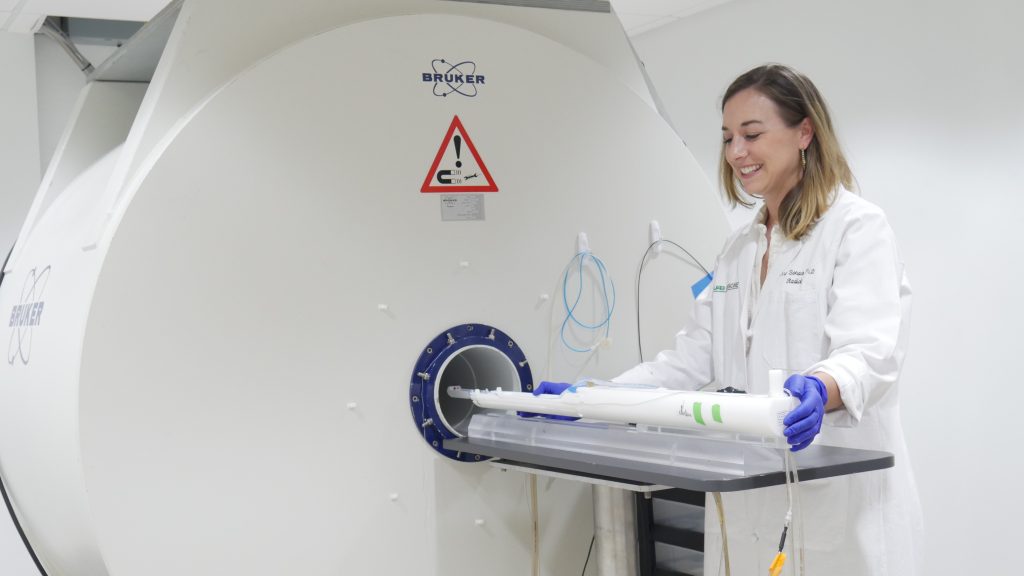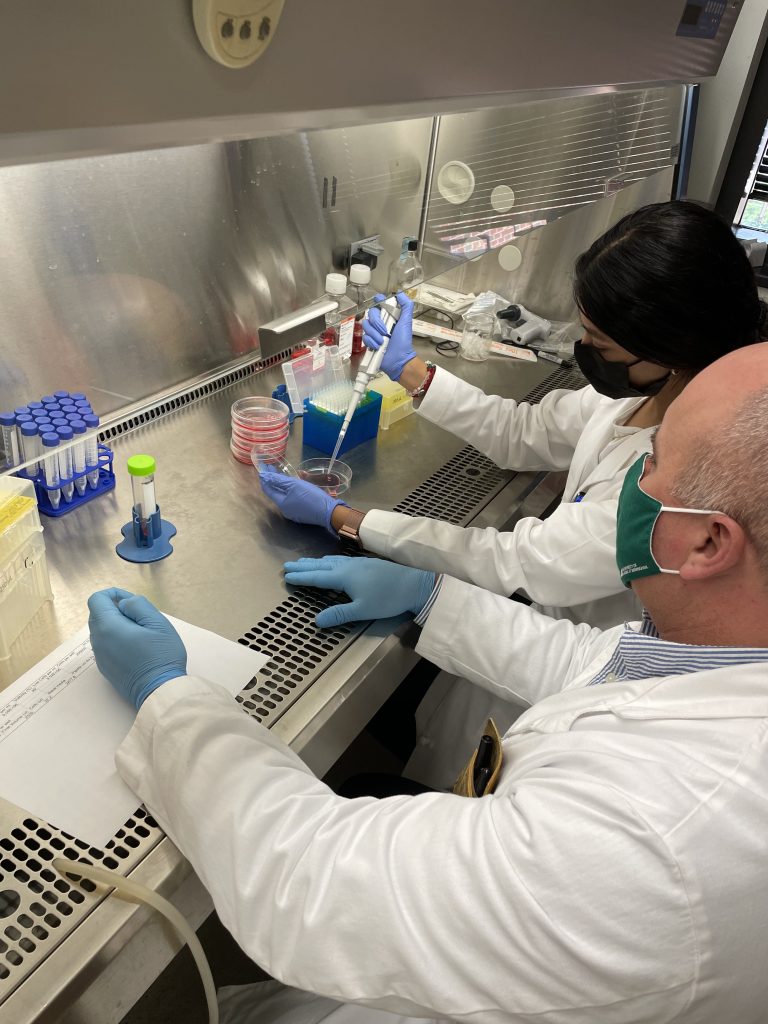The Breast Cancer Research Foundation of Alabama (BCRFA) is proud to announce the funding approval…

BCRFA Funds O’Neal Cancer Research with Recent Grants
The BCRFA is pleased to announce $210,000 in funding to O’Neal Comprehensive Cancer Center at UAB members: Anna Sorace, Ph.D.; Courtney Williams, DrPH; and Eason Hildreth, D.V.M., M.S., Ph.D.; for their breast cancer research projects.
Researchers and projects receiving funding include:
Dr. Anna Sorace: PDL1-targeted theranostic approaches to enhance combination therapy in TNBC
Dr. Sorace’s research project aims to improve treatment strategies for triple-negative breast cancer (TNBC) using theranostic radiopharmaceutical agents that target PDL1 for imaging and treatment. Combining antibody drug targeting with the cell-killing properties of ionizing radiation creates a joint imaging-directed therapy approach to target this receptor. An imaging and therapeutic probe has been developed to target PDL1, and molecular imaging using PET can identify which tumors would be reasonable candidates for the therapeutic pair [177Lu]Atezolizumab. This approach creates a highly specific combination therapy of radiation treatment and immunotherapy to improve oncology care in TNBC, with potential for other solid tumors in the future.

Dr. Courtney Williams: Identifying ideal reimbursement “dose” to reduce clinical trial-related financial toxicity
Dr. Williams’ research project aims to reduce financial difficulties that prevent women with breast cancer from participating in clinical trials. The researchers will test the recommended amount of reimbursement for trial participation using a “dose reduction trial” and will explore patient perceptions of these reimbursements. This study will be the first to test clinical trial-related cost reimbursement in a Deep South, breast cancer-specific sample. By reducing economic barriers to clinical trial participation, the study aims to increase diversity in trial enrollment and ensure cancer treatments used in real-world settings are as effective as when used in a trial setting.

Dr. Eason Hildreth: Targeting CSF1R/PU.1Signaling and PU.1 Superenhancer Regulation in Tumor Progression and Metastasis Across Breast Cancer Subtypes
Dr. Hildreth’s research focuses on genetic programs in the tumor microenvironment that drive cancer progression. To date, this has largely hinged on genetically (using genetically modified mice) and therapeutically (using microparticle drug delivery) targeting tumor-associated macrophages independent of where the tumor is located and targeting osteoclasts in bone metastasis in breast cancer. More recently, this has expanded to an interest in cancer-associated fibroblasts and renal cancer (another bone metastatic malignancy).

In 2023, the BCRFA invested $1.25 million in 35 cutting-edge research projects at eight esteemed institutions across the state, including Alabama State University, CerFlux, Inc., HudsonAlpha Institute for Biotechnology, Tuskegee University, O’Neal Comprehensive Cancer Center at the University of Alabama at Birmingham (UAB), University of Alabama, and Mitchell Cancer Institute at the University of South Alabama.
About the Breast Cancer Research Foundation of Alabama
Founded in 1996, the Breast Cancer Research Foundation of Alabama (BCRFA) is a nonprofit organization whose mission is to help find a cure for breast cancer by funding promising breast cancer research in Alabama and raising community awareness and funding for that research. BCRFA funds promote a comprehensive approach to battling breast cancer by promoting collaborative and innovative research to help diagnose, treat, prevent, and eradicate the disease.
With community support, the BCRFA has invested over $15 million in life-saving breast cancer research and treatments across Alabama since its founding in 1996. Most recently, in December 2023, the foundation announced its annual grant investment of $1.25 million to research partners including the O’Neal Comprehensive Cancer Center at the University of Alabama at Birmingham (UAB), Alabama State University (Montgomery), Auburn University, CerFlux, Inc. (Birmingham), HudsonAlpha Institute for Biotechnology (Huntsville), Tuskegee University, the University of Alabama (Tuscaloosa), and the Mitchell Cancer Institute at the University of South Alabama (Mobile). All funding stays in Alabama, but the impact is worldwide.



